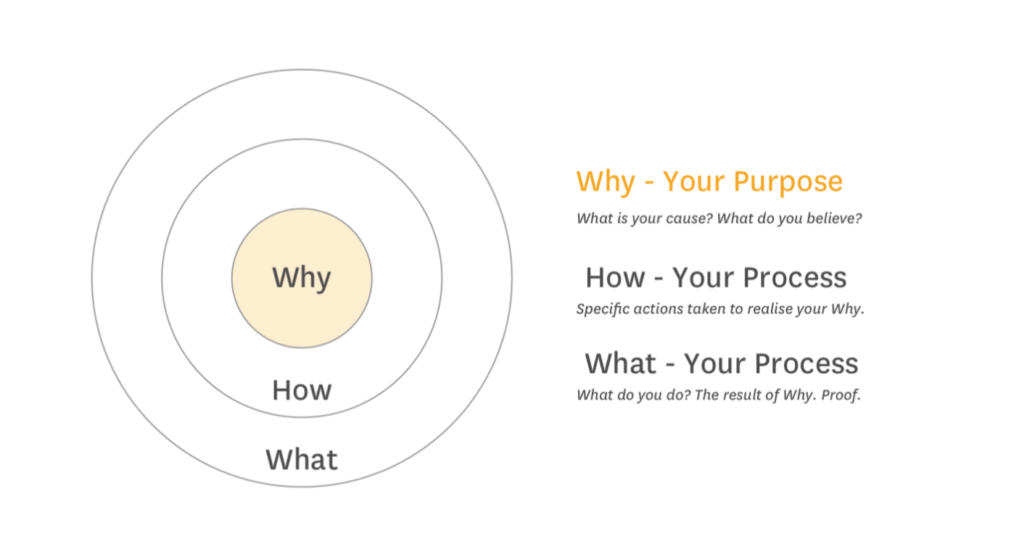In the early 1900s, Samuel Pierpont Langley was destined to become the first man in history to fly an aeroplane.
Being a Mathematics professor who also worked at Harvard, he had all the ingredients for success.
He hired the best minds available.
His friends included government officials and the Adanis and Ambanis of those times (Andrew Carnegie and Alexander Graham Bell).
His team had the finest resources available at their disposal from government grants.
And yet this is the first time you’re reading his name.
During the same time, a rather unlikely duo was working on a similar idea.
They had no college education.
Their primary income came from running a bicycle shop.
They didn’t have any government grants.
And yet on December 17, 1903, they did what Samuel Pierpont Langley was destined to do!
How did the Wright brothers trump a more educated, well-funded, and better-equipped team?
The answer lies in not ‘What’ they did or ‘How’ they did it but in the ‘Why’.
You cannot dismiss it as sheer luck.
The Wright brothers were highly motivated individuals with strong work ethics and keen scientific minds.
But more importantly, they had the innate ability to inspire those around them.
The Wright brothers began with ‘WHY’.
Every individual/company in the world knows ‘What’ they do.
Some of them know ‘How’ they do it.
But very few of them know ‘Why’ they do it.
And the answer isn’t ‘to earn money’. Earning money is a result. ‘Why’ you do what you do is something much deeper. Let’s understand this from the p.o.v. of the golden circle devised by Simon Sinek.
‘What’ refers to the product and service that you or your organization offers.
‘How’ refers to the value proposition that differentiates you or your organization from others.
‘Why’ has more to do with your cause/belief/motivation.
It is the reason you get out of bed every morning. It is why anyone should care about you or your product.
Most people think, act, and behave in the exact same way – from the outside to the inside.
They talk about what they do and how they do it. Very rarely do people talk about why they do what they do. This is what differentiates them from those who inspire us. Great leaders communicate in the exact opposite way – from the inside out.
They always talk about ‘Why’ they do followed by the ‘How’ and the ‘What’. This is the reason why they create loyalty among their followers that lasts for generations.
In the 1970s a duo set out to alter the status quo by challenging the authority.
‘Think different’ was at the core of their belief.
They wanted to provide everyone the opportunity to leverage technology. They decided to challenge the Goliath – ‘IBM’ (who had a kind of monopoly) by making computers available to everyone. Thus making the computers truly ‘personal’.
Within a few years, they went on to become the leading computer company in the world.
The reason why Apple has been successful over the past five decades is because they have always been true to their ‘Why’.
In the early 2000s, they disrupted the entire music industry by challenging the status quo with iPod.
In the late 2000s, they did the same to the smartphone industry with the iPhone.
Last decade they took on the smartwatch industry and their sales figures surpassed even traditional giants.
No matter What they do, their ‘why’ doesn’t change. What they do is simply tangible proof of their cause.
This is why they command loyalty among their followers.
This is why people queue up outside stores on the first day of release to buy their iPhones.
You wouldn’t buy a music player from Dell.
You wouldn’t even think of buying a smartphone made by Microsoft.
And you’d think I’m crazy if I told you I own a smartwatch made by Sony.
And yet all these are computer companies just like Apple.
They are perfectly qualified to do what Apple does.
And yet all of them failed.
The reason being, they focused too much on the features and too little on their ‘Why’.
Even before you think of what to do, you must be clear ‘Why’ you want to do it.
Before you even write an article, write in one clear sentence why you are writing it.
What is the belief behind writing it?
Before you decide to start-up, figure out exactly why you want to do so?
Does that align with your core belief?
The precise ‘How’ and ‘What’ could be figured out later.
If you want to lead and inspire people, you must start with why. Knowing your ‘why’ isn’t the only way to be successful but it is the only way to maintain lasting success.
To build a culture you must work with people who believe in what you believe.
They must share the same values as you do.
That is how you resonate with them.
Langley quit the moment he lost his chance to fame. If he had been motivated by the ‘Why’, with the resources at his disposal, he would have worked on improving the technology of the Wright brothers.
But he was driven by ‘What’ (fame) and thus became a forgettable chapter in history.
Finding your ‘why’ isn’t a simple process.
It is more of a discovery rather than an invention.
Once you find it, decisions become much simpler.
Loyalty becomes easier to command and the seeds for Innovation get sown.
Having a clear why enables you to express the same clarity in the work you do and in turn brings in better results. The ‘How’s and the ‘What’s of the process are also important but you must always Start With Why.

